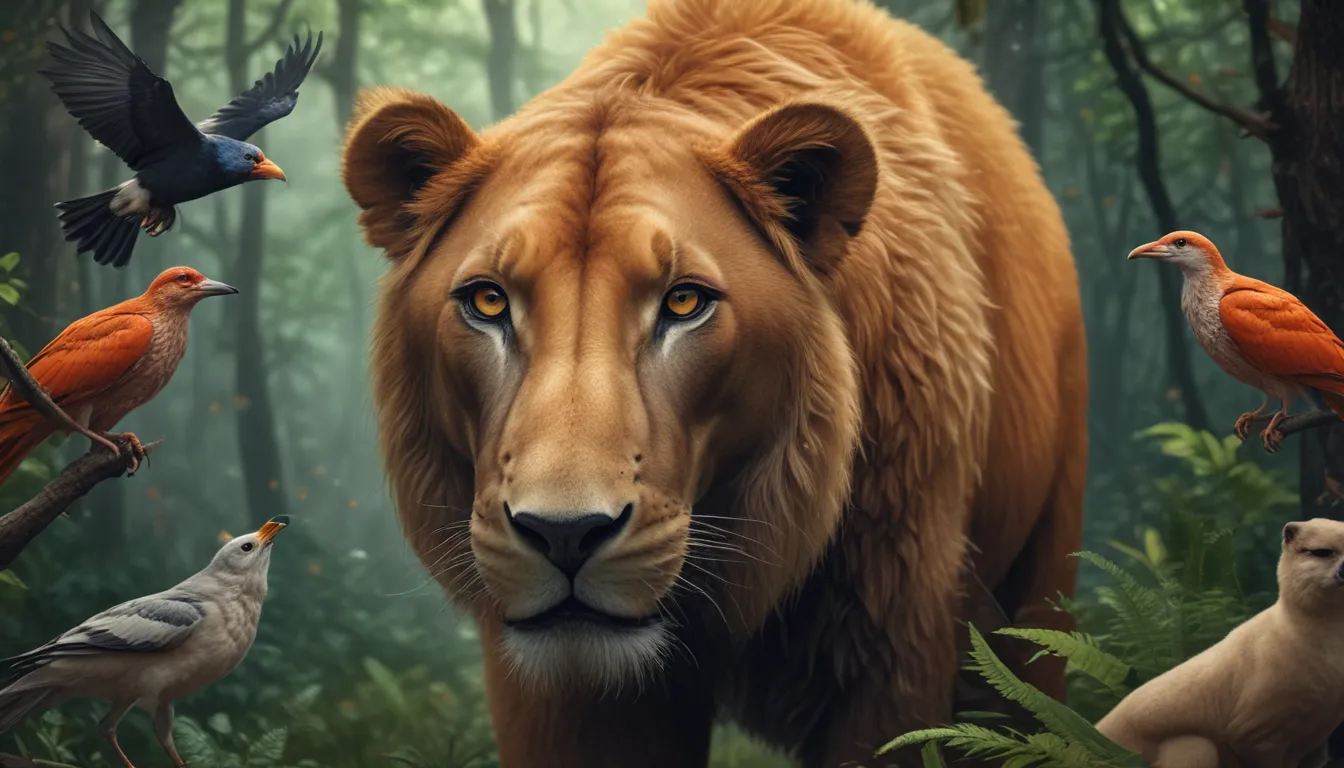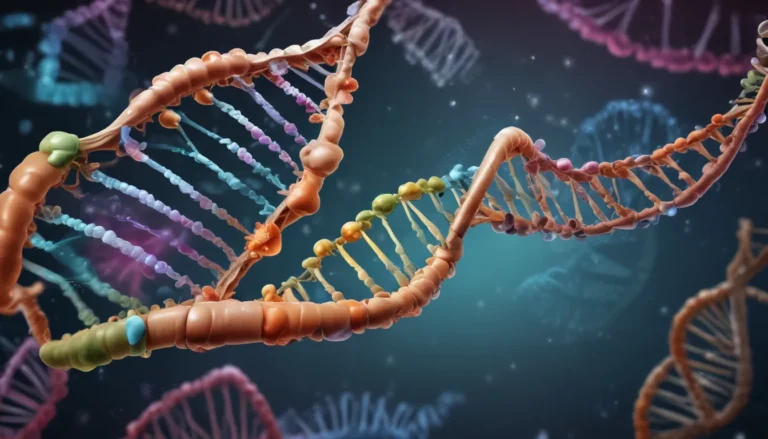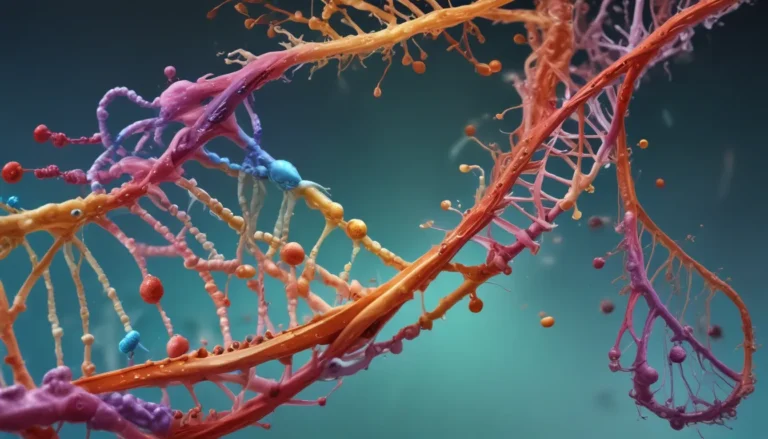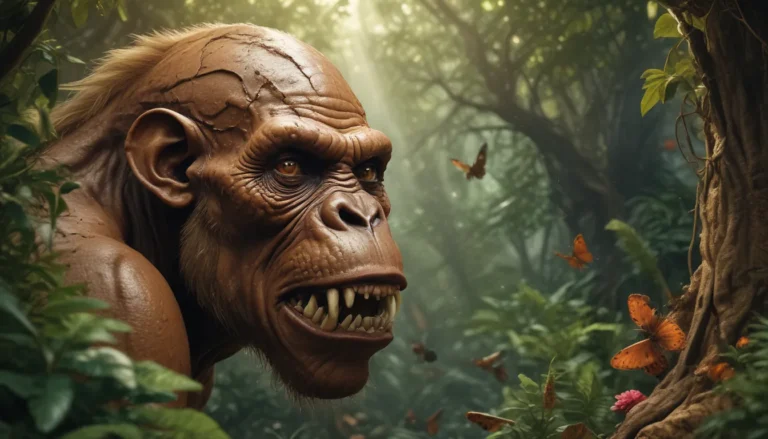A Note About Images: The images used in our articles are for illustration purposes only and may not exactly match the content. They are meant to engage readers, but the text should be relied upon for accurate information.
Welcome to the captivating realm of ethology, where we unravel the mysteries of animal behavior and delve into the complexities of the animal kingdom. From migration patterns to communication strategies, ethology offers a fascinating glimpse into the diverse behaviors of creatures big and small. In this article, we will embark on a journey to discover 20 intriguing facts about ethology that highlight the remarkable diversity and discoveries in this scientific field.
Understanding Animal Behavior: The Essence of Ethology
Ethology serves as the scientific study of animal behavior, focusing on unraveling the evolutionary and environmental influences that shape the actions and interactions of organisms. Ethologists adopt a multidisciplinary approach to uncover the intricacies of animal behavior, providing valuable insights into the captivating world of the animal kingdom.
The Evolutionary Foundations: Charles Darwin and Ethology
Renowned as one of the founding fathers of ethology, Charles Darwin’s groundbreaking work on evolution laid the groundwork for understanding behavior as an adaptive trait shaped by natural selection. Darwin’s pioneering insights paved the way for the emergence of ethology as a distinct field of study, emphasizing the importance of evolutionary perspectives in exploring animal behavior.
The Four Questions Approach: Nikolaas Tinbergen’s Contribution
Nikolaas Tinbergen, a Nobel laureate, made significant contributions to ethology through his “Four Questions” approach. By examining an animal’s behavior from the perspectives of causation, development, evolution, and function, ethologists gain a comprehensive understanding of the complexities underlying behavior and its adaptive significance.
Unveiling the Intriguing Interplay: Instinct vs. Learned Behaviors
Ethology delves into the fascinating investigation of instinctive behaviors versus learned behaviors. While instinctive behaviors are innate and present from birth, learned behaviors are acquired through experience and observation. Ethologists explore the interplay between these two behavior types to decipher the underlying mechanisms driving animal actions.
Navigating the Unknown: Migratory Behavior and Navigation
Many animals exhibit remarkable navigational abilities during migration, captivating ethologists with their intricate mechanisms. From utilizing visual cues to interpreting magnetic fields and celestial navigation, animals showcase a diverse array of navigation strategies to traverse vast distances, highlighting the marvels of their innate abilities.
Decoding the Language of the Wild: Animal Communication
Communication serves as a vital tool for animals to convey information, establish social hierarchies, and coordinate group activities. Ethologists explore the intricate world of animal communication, studying various forms such as vocalizations, body language, chemical signals, and elaborate displays or dances that facilitate interactions among species.
Unraveling Complexity: Social Behavior in the Animal Kingdom
The spectrum of social behavior in animals ranges from solitary to highly social species, showcasing a diverse array of interactions. Ethologists delve into the complex dynamics of social behavior, exploring dominance hierarchies, cooperation, altruism, mating strategies, and parental care to unveil the intricate social structures within the animal kingdom.
Safeguarding Species: The Role of Ethology in Conservation
Ethological research plays a pivotal role in conservation efforts by providing insights into animal behavior. By understanding the behaviors of endangered species, conservationists can design effective strategies to protect habitats, mitigate human-wildlife conflicts, and ensure the preservation of biodiversity essential for ecosystem health.
Mirror to Humanity: Insights from Animal Behavior
Studying animal behavior serves as a mirror to humanity, offering valuable insights into our own actions and interactions. Ethological research unravels similarities and differences between human and animal behavior, shedding light on our evolutionary past and enriching our understanding of psychological and social dynamics.
Genetic Underpinnings: The Influence of Genetics on Behavior
Ethologists delve into the genetic foundations of behavior, exploring how genes interact with the environment to shape individual actions. Behavioral genetics, a fascinating field within ethology, provides insights into the age-old debate of nature versus nurture, offering a unique perspective on the complexities of behavior.
The Cognitive Enigma: Animal Cognition and Intelligence
Ethologists showcase the remarkable cognitive abilities of many animal species through studies that demonstrate problem-solving skills and tool use. These findings challenge traditional notions of human superiority, highlighting the cognitive capacities of animals and emphasizing the diversity of intelligence across species.
Early Bonds: Imprinting and Early Learning
Ethologists have made significant strides in understanding imprinting, a critical process wherein animals form strong bonds during early development. Extensively studied in birds like ducks and geese, imprinting illuminates the importance of early experiences in shaping social bonds and learning behaviors essential for survival.
Enhancing Well-Being: The Role of Ethology in Animal Welfare
Understanding animal behavior is crucial for improving animal welfare, guiding efforts to enhance housing conditions, enrichment strategies, and overall well-being for animals in captivity. Ethological insights provide valuable guidance for ensuring the welfare of animals across diverse habitats and settings.
Environmental Influences: The Impact of Habitat and Climate
Ethology explores the influence of environmental factors on animal behavior, including habitat quality, climate conditions, and resource availability. This knowledge enables us to comprehend how animals adapt and respond to their surroundings, offering crucial insights for conservation and wildlife management efforts.
Cooperative Conundrum: The Evolution of Cooperation
The evolution of cooperative behaviors intrigues ethologists, showcasing mutualistic interactions in various species. From complex social structures in ants to cooperative hunting in dolphins, studying cooperation unveils the benefits and strategies behind mutually beneficial interactions, shedding light on the dynamic nature of social behaviors.
Parental Guidance: Reproductive Strategies and Parental Care
Ethologists investigate the diverse reproductive strategies seen across animal species, including elaborate courtship rituals and parental care behaviors. From the intricate dances of birds to the unique role of male seahorses in egg care, understanding parental dynamics enriches our knowledge of reproductive strategies within the animal kingdom.
Individuality Within Species: Animal Personality and Behavior Traits
Recognizing individual differences within species, ethologists highlight the presence of unique personalities and behavioral traits among animals. Studying these variations provides valuable insights into the complexity of animal behavior and the factors contributing to behavioral diversity within populations.
Learning from Others: The Significance of Social Learning
Ethologists uncover the role of social learning in animals, emphasizing the acquisition of new behaviors through observation and imitation. Social learning plays a pivotal role in cultural transmission and the dissemination of knowledge within animal populations, showcasing the adaptive nature of learning behaviors.
Interconnected Ecosystems: Ethology and Ecological Interactions
Studying ecological interactions within the animal kingdom, ethologists explore intricate relationships between species, such as predator-prey dynamics, symbiotic partnerships, and competition for resources. This understanding illuminates the delicate balance of ecosystems and the interconnected nature of species interactions critical for ecosystem health.
Embracing Innovation: The Future of Ethology
As ethology continues to evolve, advancements in technology and interdisciplinary collaboration hold promise for unraveling the complexities of animal behavior. The integration of molecular biology, neuroscience, and computational modeling opens new horizons for ethologists, offering exciting prospects for deeper insights into the enigmatic world of animal behavior.
Embracing the Wonder: The Enchantment of Ethology
In conclusion, ethology stands as a mesmerizing field of study that unveils the captivating behaviors and interactions of diverse animal species. Through the lens of ethology, we gain a profound appreciation for the intricacies of animal life, recognizing the importance of conservation efforts to preserve the rich tapestry of ecosystems and species that inhabit our planet.
Exploring the Inquiry: Frequently Asked Questions
-
What is ethology?
Ethology is the scientific study of animal behavior, encompassing various aspects such as communication, reproduction, social structure, and adaptation to the environment. -
How do ethologists study animal behavior?
Ethologists employ a combination of field observations, experimental studies, and laboratory research to understand animal behavior. By observing animals in their natural habitats and conducting experiments, they unravel the underlying mechanisms guiding animal actions. -
What is the significance of studying ethology?
Studying ethology enables us to gain insight into the evolutionary adaptations, social dynamics, and ecological interactions of animals. It provides valuable information for conservation efforts and enhances our understanding of animal behavior. -
Can ethology help us understand human behavior?
Yes, ethology offers valuable insights into behavior mechanisms that can be applied to studying human behavior. Ethological studies have contributed to disciplines such as psychology, anthropology, and neuroscience, enriching our understanding of human behavior. -
Is ethology solely focused on wild animals?
No, ethology encompasses the study of behavior in both wild and domesticated animals, including interactions with humans and behaviors in captive environments.
As we embark on this captivating journey through the realm of ethology, may the wonders of animal behavior inspire curiosity and appreciation for the intricate world of creatures that share our planet. Embrace the magic of ethology and delve into the remarkable discoveries that unveil the mysteries of the animal kingdom.






